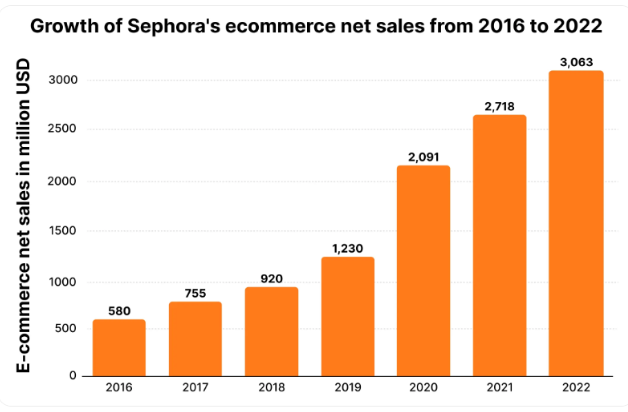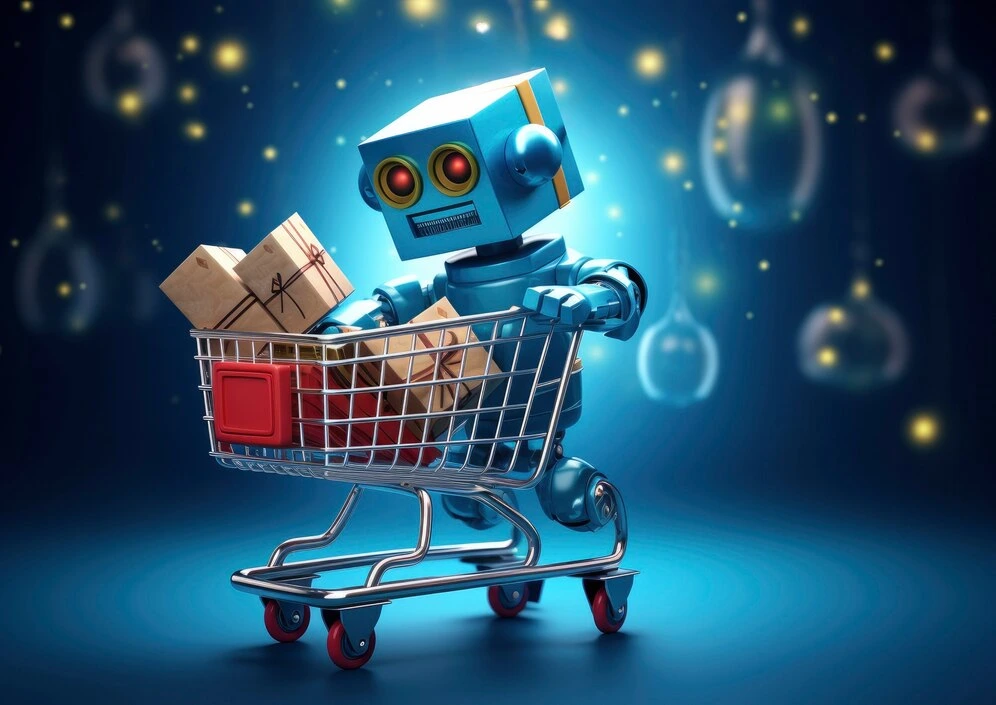Table of Contents
- Importance of AI and Data Science in E-commerce
2. Interconnection of Artificial Intelligence and Data Science
- Definitions and Relationship
3. Boosting Sales and Customer Loyalty with AI
- Personalized Recommendations
- Customer Sentiment Analysis
- Chatbots & Virtual Assistants
4. How Prescience, a Movate company Helped E-commerce Platforms
- Case Study: Boosting ROI and Sales
- Future of AI and Data Science in E-commerce
Introduction
Today, every business wants to become customers favorite, through understanding their preferences and delivering the right products and services. However, this is not going to be a downhill ride. Thanks to artificial intelligence and data science which function as saviours for achieving this goal. With businesses evolving day by day, the growth in data is exponential. But the actual question is, are we making a meaningful use of this data for business success? Well, artificial intelligence and data science are the modern techniques which is incorporated in all businesses today for generating data-driven insights. E-commerce businesses is no exception to make use of these technologies. Imagine, if we could predict what customers want before they realize it themselves- delivering personalized experiences.
A report from global AI, says AI in e-commerce market is projected to grow from USD 5.79 billion in 2023 to USD 50.98 by 2033. This number shows the growing impact of AI in e-commerce.
In this blog, we will explore how artificial intelligence and data science helps e-commerce to boost sales and customer satisfaction.
Interconnection of Artificial intelligence and Data Science
Artificial intelligence means the ability of machines or computers to learn from data that can perform tasks requiring human intelligence. This includes problem-solving ability, learning, decision-making, etc. Whereas data science is a vast field that focuses on analyzing large datasets to gain insights and make correct decisions.
These two techniques are closely interrelated. AI uses data science techniques to learn from data. If data is not available, then building AI models will become a challenge. For example, to build ML models that can predict future outcomes, analyzing historical datasets is crucial.
Data science provides data and methods, while AI uses this data to make smart decisions.
How Modern E-Commerce Is Driving Sales and Customer Loyalty with Artificial Intelligence
The common areas where artificial intelligence and data science are used in e-commerce is for boosting sales, providing profit and to create a sense of customer loyalty towards the brand. Let us look at each of them in detail.
1. Personalized recommendations – Artificial intelligence and data science play crucial roles in generating personalized product recommendations. Through data science, customer data is analyzed from various sources such as demographic data,transactional data, behavioral data etc. AI based algorithms, ML and predictive models can analyze past data and predict which type of products customers like the most.
According to a McKinsey report 35% of sales are generated through personalized recommendations.
Some of the AI-based algorithms that provides personalized recommendations are,
a. Content-based filtering – This recommends product based on what a user has already liked in the past. The filtering is done based on the product colour, type, etc.
b. Collaborative interaction – This recommends a new product that is collaboratively liked by two or more users. This method analyzes user and item interactions to suggest products.
c. Deep learning model – Advanced AI capabilities such as neural networks are used to find the hidden patterns of users. This helps in guessing products better.
One of the best examples of an e-commerce platform utilizing AI for product recommendation is Amazon recommendation engine. It is a smart assistant that recommends products based on customers likes and preferences. Amazon recommendation works on the algorithms of collecting data, finding patterns between the user behaviour, and recommending products.
Moreover, Amazon leverages two hybrid recommendation models, i.e.
a. Bandit based algorithm.
b. Casual interference algorithm
Bandit algorithms use reinforcement learning (AI learning from trial and error) to recommend new products in real time based on the already successful ones. Whereas casual interference finds what factors influenced the customer to notice the product, by considering external factors.
2. Customer sentiment Analysis – Another way to improve the customer satisfaction is by analyzing their sentiments. NLP, (a type of AI that uses natural language), texts to understand the human emotions is used for sentiment analysis. The data can be collected from customer feedback such as social media, customer reviews etc. This helps in figuring out customer emotions through which businesses can recognize the areas for improvement.
For example, Amazon uses sentiment analysis to get insights from customers through reviews, enhancing product offerings etc. Amazon’s comprehend, uses NLP to get contents from documents. It extracts insights from key phrases, languages, and sentiments. This allows Amazon to understand customer opinions and make decisions accordingly.
3. Chatbots & Virtual Assistants – Artificial intelligence and data science plays a key role in providing real-time virtual assistants and chatbot support. Natural Language Processing (NLP) is used for understanding customer queries and engaging in meaningful conversations. Chatbots utilizes ML algorithms to understand the past conversations thus providing more accurate answers. Additionally, data analytics techniques are used for analyzing vast amounts of data for product suggestions. Real-time analytics is used for providing chatbot assistance by addressing customer queries 24/7.
For example, Sephora’s online platform implemented AI-powered chatbot called Sephora assistant that allows customers to book make-up appointments online effortlessly.
Moreover, Sephora virtual artist uses AR and AI for personalized makeup recommendations and virtual try on. This boosted online sales from 580 million in 2016 to 3 billion in 2022.

Source – Statista.com
How Prescience, a Movate company Helped an E-commerce Platform to Boost ROI and Sales
An online shopping platform connecting buyers and sellers across 190 countries has faced a challenge in measuring the effectiveness and ROI (return of investment) of a customer loyalty program globally (customer reward system). The challenge stemmed due to a lack of relevant data and dependable KPIs to track.
To resolve this the company partnered with Prescience Decision Solutions, a Movate company to accurately assess the loyalty program to increase customer traffic and sales.
The team from Prescience, a Movate company applied AI, data science, and ML algorithms to predict the buyer behavior and optimize the loyalty program accordingly. ML models, such as Random Forest classifiers, were integrated to assess the buyers joining the program. A cohort analysis approach was also used to link buyers account to the loyalty program to reduce selection bias. Additionally, technologies like R, for machine learning and SQL for data preparation was used.
This solution provided an 83% accuracy in buyer participation prediction, track ROI, customer lifetime value etc. Furthermore, the solution led to an overall increase in sales, repeat purchases, customer engagement and retention.
To get more insights click here.
Conclusion
In conclusion, artificial intelligence and data science are enhancing e-commerce platforms in the modern era. It has become a necessity to implement artificial intelligence and data science into e-commerce platforms. It not just helps in boosting customer engagement but also create a more profound sense of relation with the customers by adequately understanding their preferences.
Brands can increase their sales and customer loyalty through personalized recommendations, intelligent chatbots, and understanding customer sentiments. As e-commerce continues to develop, these technologies will not only help to stay ahead but also craft more customer-centric experiences in future.
At Prescience Decision Solutions, a Movate company, we offer complete data solutions that integrates both Artificial intelligence and Machine learning across various services like analytics, business intelligence, data engineering and more. Our custom Artificial intelligence and data science solutions are created to meet the specific and unique needs of each business.
Discover successful customer stories here.

Prescience Team



